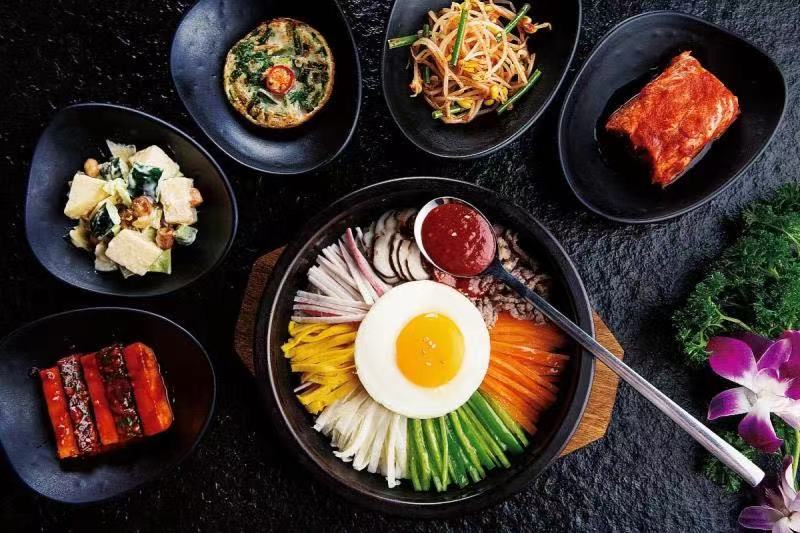Dear ladies and gentlemen, you must be fascinated by the delicacies in the classic Korean dramas, “Dae Jang Geum”, “Venice Lovers”, “Diners”, “God’s Dinner”, etc. Today, let’s discover and enjoy Korean cuisine, culture, and etiquette!
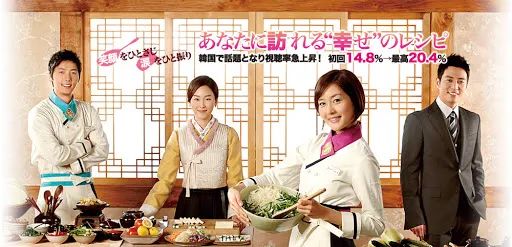
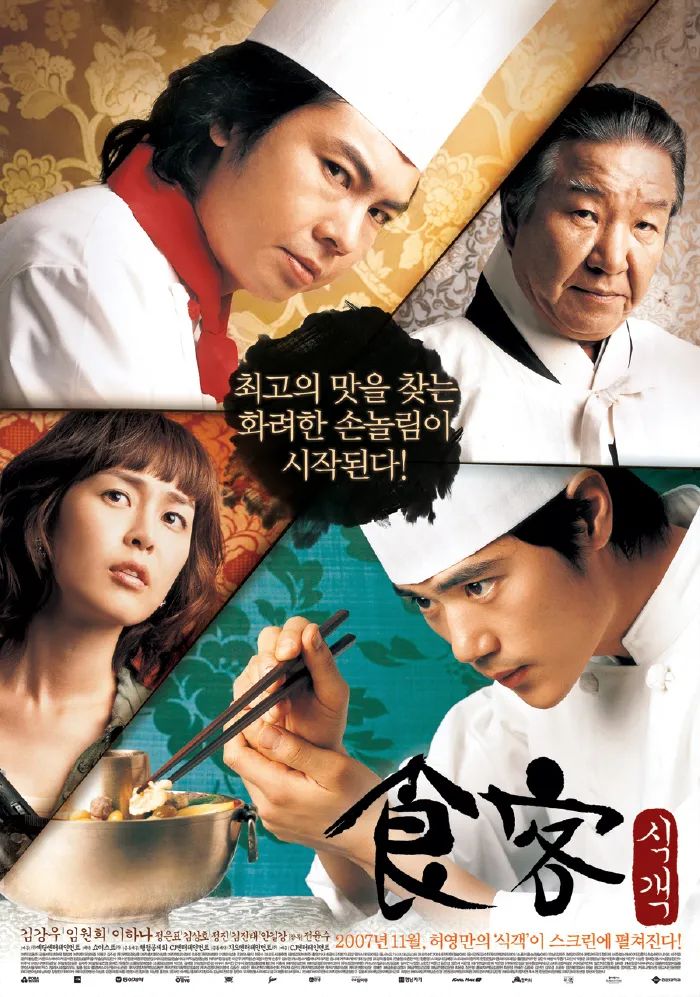
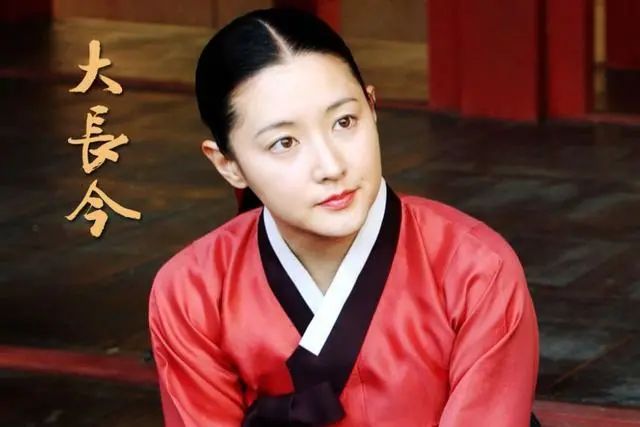
Korean tablewares
The metal tablewares
You may easily notice that the Korean tablewares are made of metal, why? For the simple reason that Korean people used to eat pickled dishes. Wood tableware soaked into pickled dishes is not hygienic.
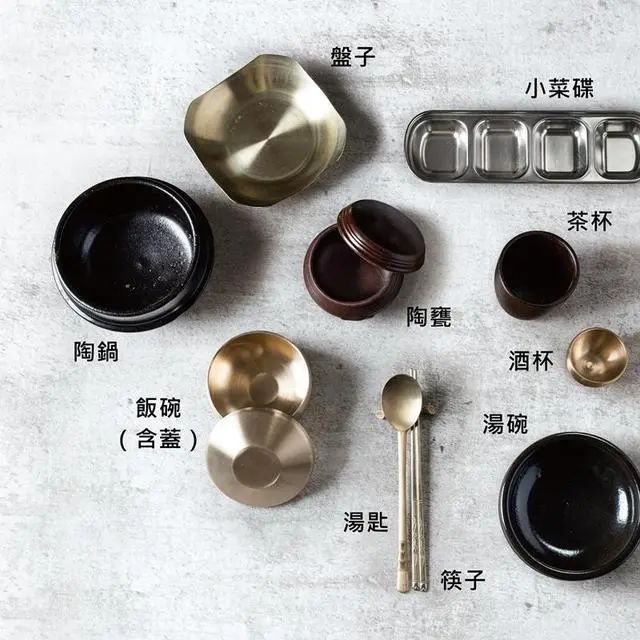
Tip: The law forbids the use of disposable chopsticks in the catering industry. Sustainable right?
Stone pot
Stone pot is originated in China, however, later it became more popular in Korea.
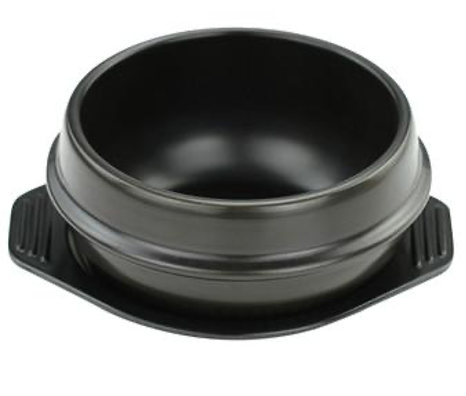
Small Plate Table
The “Small Plate Table”, also known as “Dining Table”.is small and easy to move.
They will put all the dishes on the small table first and then move the whole table to the dining place.
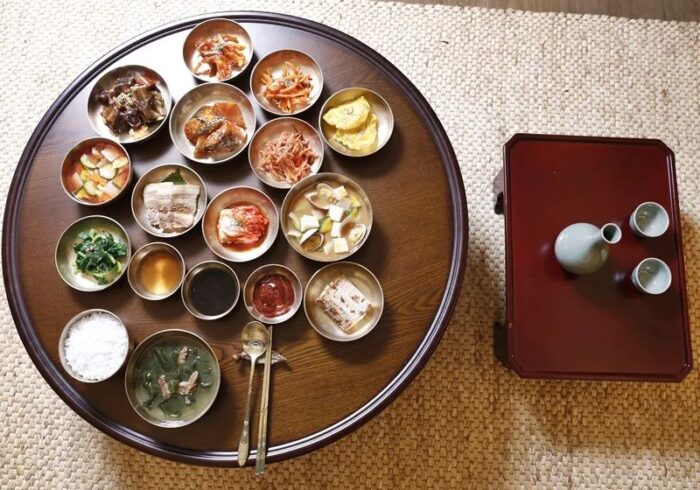
Table setting
Tableware is placed on the right side of the meal vertically. The chopsticks on the right, and the spoon on the left.
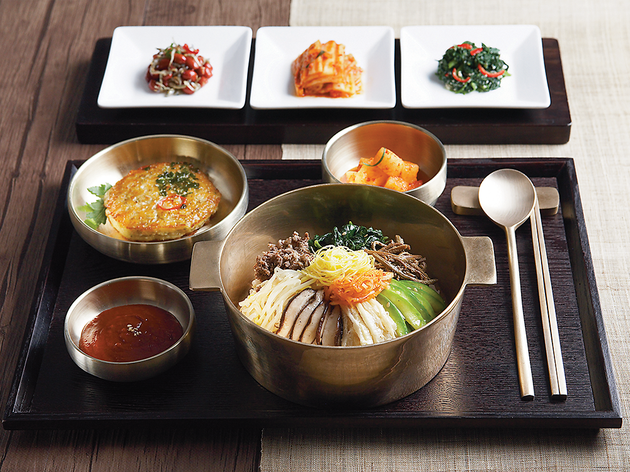
Han-jeongsik
“Han-jeongsik” means full table, composed of appetizer, main courses, staple food, and dessert.
Quizz: Do you know how many levels are there in the han-jeongsik?
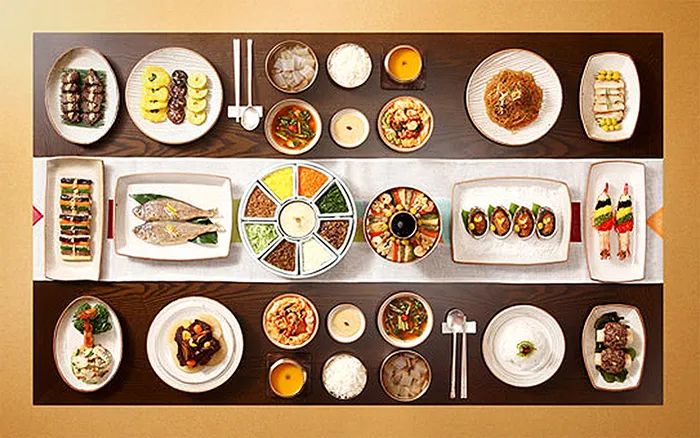
There are five different levels: 3 dishes, 5 dishes, 7 dishes, 9 dishes, 12 dishes (rice, soup, or condiments dishes are not included).
3 dishes: the ordinary family
5 dishes: the wealthy family
7 dishes: the wedding banquet
9 dishes: the highest level banquet held by the ordinary people
12 dishes: the royal family

Korean Seasoning
Korean cuisine is featured in “five flavors and five colors”.

The “Five flavors” concept: sweet, sour, bitter, spicy, and salty;
The “Five colours” concept: red, white, black, green, and yellow.
These condiments are essential to Korean cuisine:
Spicy sauce: not too spicy, slightly sweet;
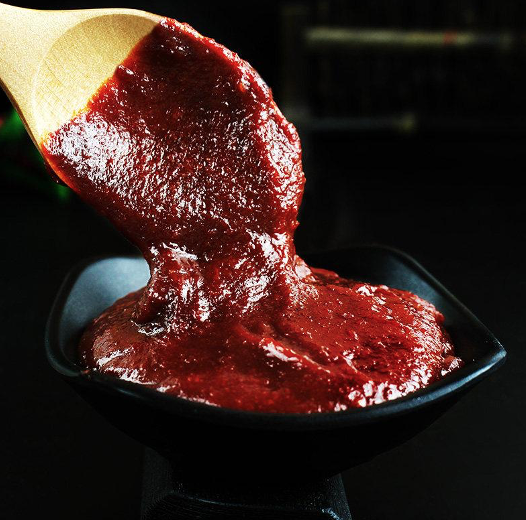
Fish sauce: sour and salty;

Miso: similar to the taste of soy sauce, but not as salty as soy sauce.
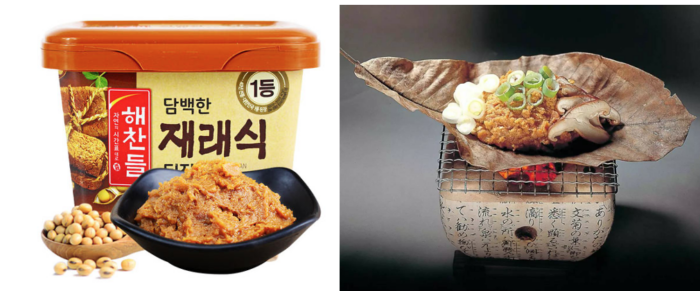
The Kimchi
Kimchi is essential in Korea.
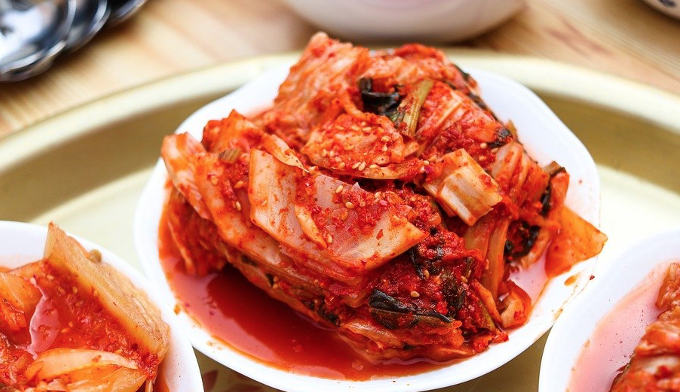
A jar of kimchi can even be passed down to nine generations…

DO’s & DON’Ts in the Korean table manners
The table manners of Korea have been well passed down by Koreans.
DO
Koreans either sit on chairs or sit cross-legged on the ground during meals.
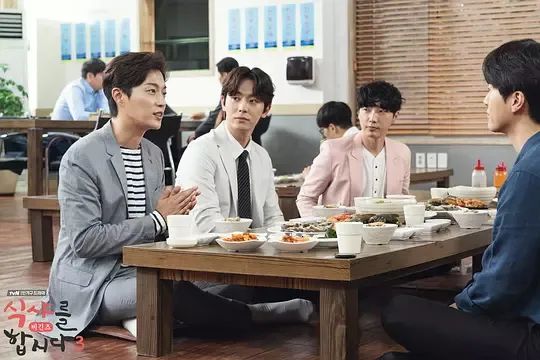
Use both hands to pour shochu to the elders with 70% glass full, it symbolizes blessing from the Confucian philosophy “fullness is full”.
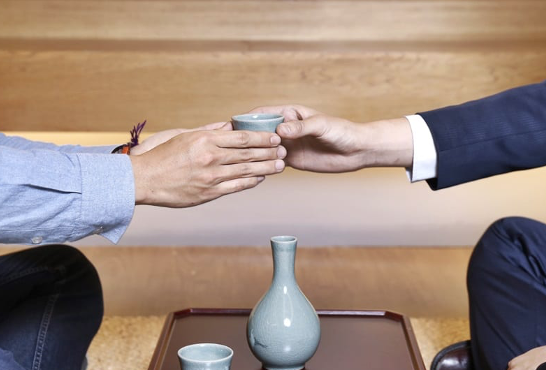
You cannot only use one hand to pour wine. Support your elbow with your other hand to show respect.
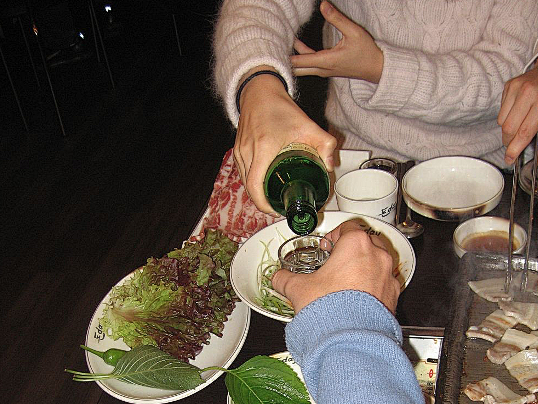
Cover your hands sideways when drinking.
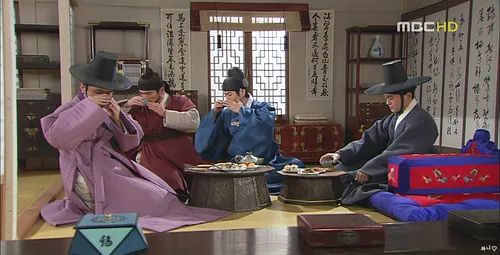
When there are elders at the table, you must wait for them to start. Stay at the table until the elders finish the meal.
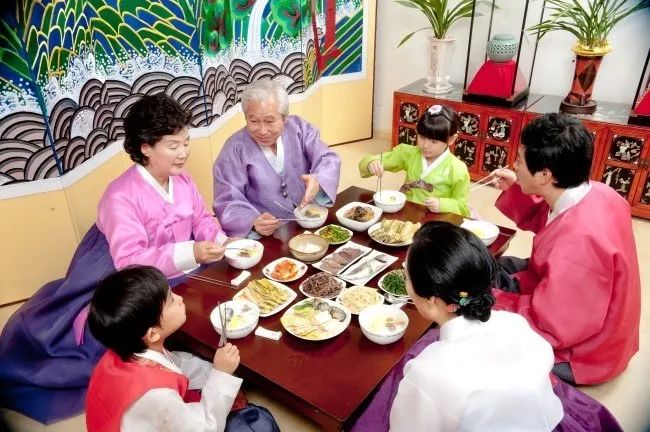
Soup always comes first, then you can enjoy other foods after it. Spoons are for the rice and the different types of soup, chopsticks for other dishes.
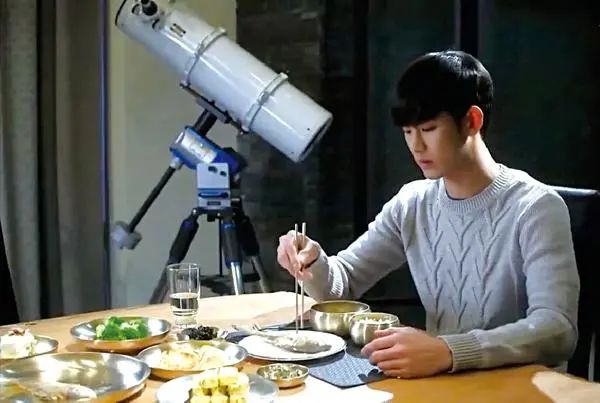
After the meal, always place the chopsticks and spoons in the original position, and fold the used napkin neatly.

Don’t:
You can not hold the bowl in your hands when eating.
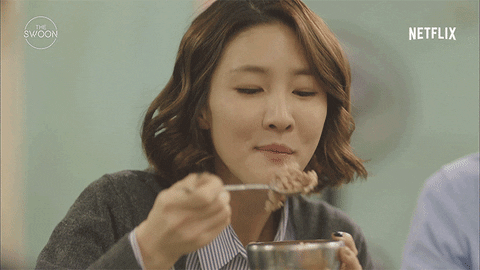
Don’t hold the bowl up while eating
It is false to grab both the spoon and chopsticks at the same time. When using chopsticks, let the spoon stay on the table.
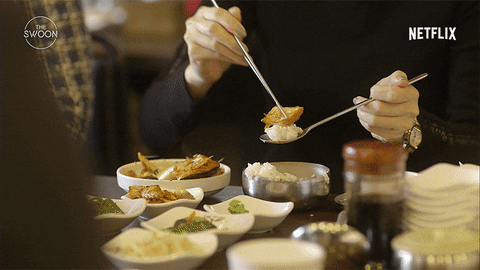
This is NOT correct
Do not put the spoon and chopsticks on the bowl.
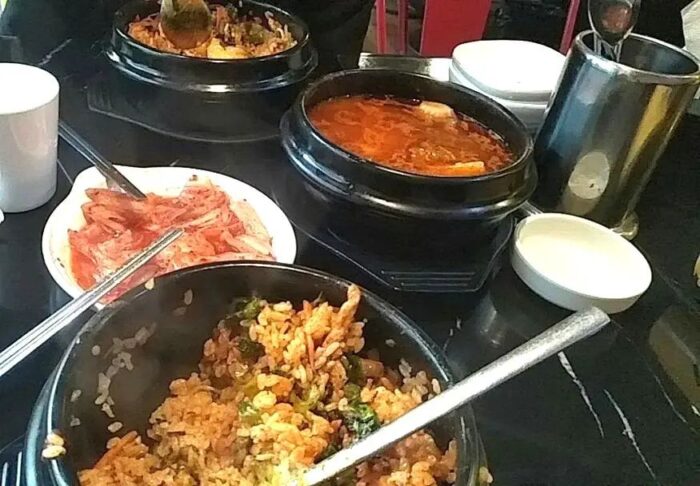
Do not talk when you have food in your mouth.

“Mas-iss-eoyo!” What is your favorite Korean cuisine? Share with us!

